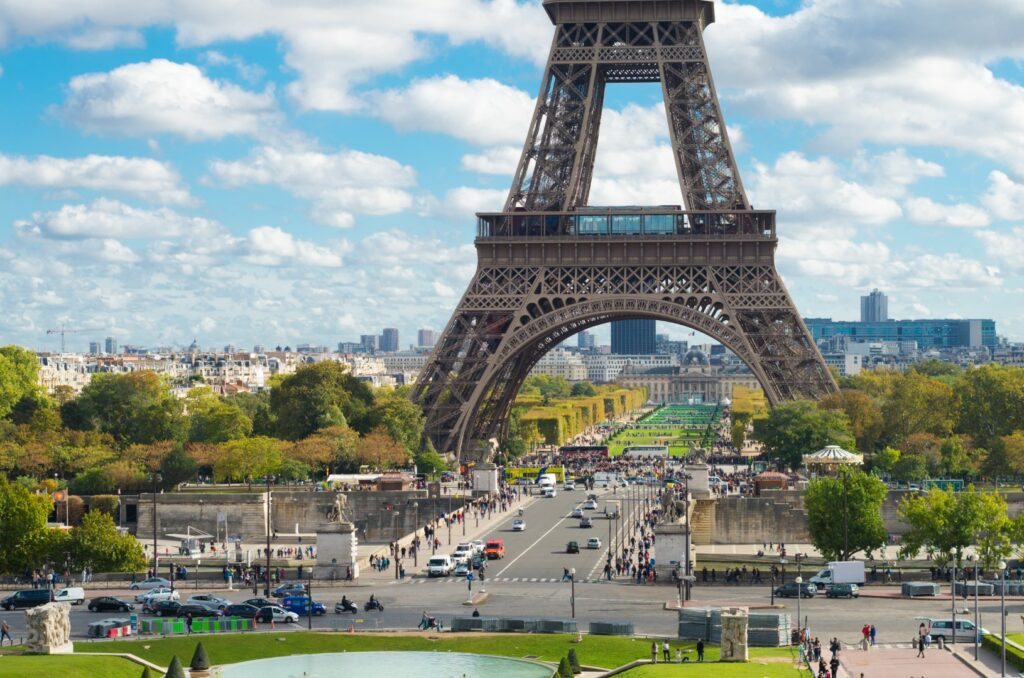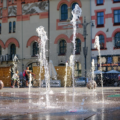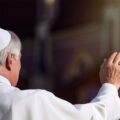Presidential elections in France: Christianity as a safe haven for the radical right
Presidential elections in France: Christianity as a safe haven for the radical right
What can two candidates of the radical right for the French presidential election be doing in Armenia? Competing to seduce the conservative Catholic electorate.
Armenia, “a Christian nation in the middle of an Islamic ocean”
From the 11th to 14th of December 2021, Éric Zemmour, the far-right candidate in the 2022 French presidential elections, went to Armenia. He was accompanied by Philippe de Villiers, a former sovereignist[1] and traditionalist leader.[2] They visited the Armenian apostolic monastery of Khor Virap. In this symbolic place located on the border with Turkey, the ex-journalist explained that the purpose of his trip was to go back to the roots of Christian civilisation, which he sees as fundamental to understanding what is happening to us today and to be able to project ourselves into the future.[3]
But what lesson did Zemmour want to emphasise with this unprecedented trip? He sees in Armenia, “a Christian nation, which intends to remain so, in the middle of an Islamic ocean,” the symbolical place of “the great confrontation between Christianity and Islam which is being reborn today.” Armenia is recognised as having become the first country to adopt Christianity as its official religion (301 A.D.). Despite the genocide committed by the Ottoman Empire in 1915, Armenians in Armenia and the diaspora have retained a strong attachment to their traditions. More recently in autumn 2020, a short but bloody war with Azerbaijan, a predominantly Muslim country, forced Armenia to sign a ceasefire and cede part of the territories of Nagorno-Karabakh that it controlled until then.[4]
A radical right competition for the defence of Judeo-Christian civilisation
With his first trip abroad as a presidential candidate, Zemmour found a new way of stating his favourite theme: the survival of Judeo-Christian civilisation threatened by the expansion of Islam. This is a theme that he has so far managed to impose in the French presidential campaign. As proof, his main rival, Valérie Pécresse, winner of the Republican primary, has also chosen Armenia as her first official trip abroad. Pushed by the right wing of her party, she hopes to address a French Catholic electorate attached to the defence of the persecuted Eastern Christians.[5]
A political message to the Catholic and conservative electorate
In this presidential race, travelling to Armenia appears to be a way of mentally projecting an ideological struggle that is taking place in France. This struggle against radical political Islam is taking place in urbanised suburbs where most of the Muslim immigration to France resides. An immigration that is insistently denounced by the radical right as the source of all the ills of French society. These suburbs or ghettos are regularly described as “the lost territories of the Republic” where the laws and republican principles, such as laïcité, are not respected.[6]
In this sense, this unusual attraction toward Armenia should be understood as a message sent to the French conservative electorate, rather than to the Armenian community in France.[7] This is a community that has made a major contribution to French culture while remaining very attached to its roots.[8] In reaction to Zemmour’s trip to Armenia, several Armenians in France published an article in the newspaper Le Monde, denouncing what they consider to be an instrumentalisation of their own history. Especially since Zemmour regularly opposes the laws penalising the negation of genocides.[9]
Catholic conservatives are increasingly visible on the political scene and represent a significant electorate for the radical right. They do not hesitate to take a firm stance against secularisation and Islamism. Since 2013 and the law on gay marriage, their political commitment is regularly reactivated by parliamentary debates on bioethical issues, abortion, or euthanasia. The attacks committed by Islamist terrorists against Catholic clerics and faithful (in particular the assassination of F. Jacques Hamel in 2016 and of several people praying in a church in Nice in 2020) have further radicalised some of them.[10]
Defending the Christians in the East and restoring moral order in France
It is worth noting that the defence of Eastern Christians is also a new ‘tropism of the French right’, visible since about 2015. Alexis Artaud de la Ferrière, historian and sociologist of religions, has studied the ideas and practices of the French NGO SOS Chrétiens d’Orient [SOS Eastern Christians], which mobilises a very active network of young French people sent on mission to Lebanon and the whole region. He demonstrates in his conclusions how the representation of the Eastern Christians today serves the cause of the restoration of a moral order in France, tinged with nationalism.[11] [12]
In some ways the situation of the Eastern Christians seems to remind conservatives of the situation of Christians in some highly urbanised areas in Europe. In their eyes, it even prefigures the future of Christians in Europe. Thus, their commitment to solidarity with their co-religionists in the East would sometimes be “proportional to the hatred they feel towards Muslims and Islam.”[13]
An increasingly inward-looking French Catholic Church
This conservative revival in France is also fuelled by the identity-based tensions and the feeling of cultural insecurity expressed both in French society and within the Catholic Church.[14] French Catholics are, after all, French people like any other. In the Church, these tensions are manifested by a general withdrawal into oneself: an increasingly tight division into faith communities to the detriment of the traditional dynamics of the parishes, but also by internal quarrels over liturgical issues (rites, practice, songs, etc.).
These internal tensions between traditionalists and those who conform to the progressive reforms of the Second Vatican Council regularly fill the pages of the newspapers. It contributes to tarnishing the image of a Church that tends more and more to turn away from social issues (fight for social justice and against poverty), from the promotion of human rights, and from dialogue between cultures. Today, the Catholic Church in France is facing a dilemma that the bishops themselves are struggling to resolve:[15] to choose between being with one’s own kind or making efforts to open up to society and its diversity. The candidates of the radical right in the presidential election have made their choice.
Want to learn more about similar topics? Go to the EARS Dashboard and receive weekly updates.
Sources
[1] In the case of Philippe de Villiers, the Sovereignism is a political doctrine which supports preserving political independence of France in opposition to the European federalism and the US influence.
[2] Présidentielle 2022 : Eric Zemmour en Arménie, “une nation chrétienne au milieu d’un océan islamique” | LCI
[3] En Arménie, Éric Zemmour joue la corde civilisationnelle
[4] Christianity and Islam in Nagorno-Karabakh – www.ears.eu
[5] Valérie Pécresse : comment l’aile droite de LR fait pression sur la candidate – L’Express
[6] « Les Territoires perdus de la République », retour sur près de vingt ans de polémique autour de la laïcité à l’école
[7] Valérie Pécresse envoie un message à l’électorat catholique depuis l’Arménie
[8] Les Arméniens en France – Le Point
[9] Arménie : « Nous refusons de voir Eric Zemmour s’approprier nos douleurs »
[10] Droite catho et Zemmour : “le sentiment de minorité menacée légitime un glissement xénophobe”
[11] Pourquoi Matteo Salvini use-t-il autant de références religieuses ?
[12] SOS Chrétiens d’Orient : le renouveau du conservatisme catholique français au prisme de l’Orient
[13] Bernard Heyberger. Christians in the Middle East. From compassion to understanding. Paris: Payot, 2013, p.9
[14] Catholiques, la tentation du repli communautaire vue par Erwan Le Morhedec | RCF
[15] Mgr Blondel : « La violence “réactionnaire” montre que le pape a eu raison d’intervenir avec son motu proprio »






